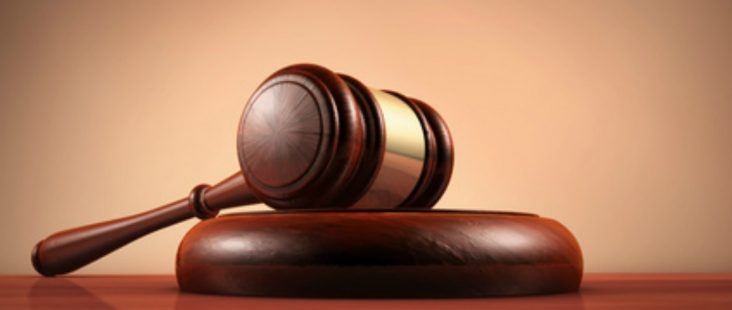Justice Baker: Attorneys’ fees could finance judicial elections
by March 30, 2016 8:22 pm 180 views

Arkansas should consider creating a system of public funding of judicial campaigns financed by an attorney license fee surcharge, Arkansas Supreme Court Justice Karen Baker said Wednesday (March 30).
Baker was speaking before the Senate Judiciary Committee, which was considering alternatives to Arkansas’ system of electing judges as well as a bill by Rep. Clarke Tucker, D-Little Rock, that would require so-called unreported “dark money” groups to report their donors.
Baker suggested a fee of $150 that would be added to the $200 they already pay. She described it as a “user fee” in order to have impartial judges. The fee, which about 8,000 attorneys statewide would pay yearly, would accrue over time. She said funds could be provided first for appellate races but eventually could fund other races.
A mechanism would be needed to qualify for the funding, such as collecting a certain amount of small donor donations or collecting enough signatures to qualify for the ballot. Candidates would have to agree not to spend above a certain amount in their campaigns.
Baker said other states have created such models with some success.
Judicial campaigns have become a focus both because of the unreported money’s influence in recent Supreme Court elections and because of a recent series of reports in the Arkansas Democrat-Gazette detailing the amount that a few large law firms have donated in judicial races. Gov. Asa Hutchinson has indicated support for appointing justices.
But Sen. Terry Rice, R-Waldron, said a small pool of people would have the power to make judicial appointments. He said voters are right more often than they are wrong and none of his constituents have told him they want to lose their ability to vote for Supreme Court justices. Baker agreed.
Justices under court rules are supposed to avoid knowing who their donors are to avoid the appearance of impropriety. Baker said she tries her best not to know. The situation creates problems for justices when it comes to whether they should recuse because they may not know they should, Baker said.
“I’m for transparency. I’m also for elections,” she said.
Baker said the court met for about two hours discussing the issue Tuesday and wants to be involved in the process.
Candidates for office must report their donors, as must independent expenditure groups that advocate for a candidate’s election. But independent groups that don’t expressly favor or oppose a candidate can keep their donors secret. The difference appears at the end of televised ads, when the narrator tells the viewer to contact a candidate rather than vote for or against them.
Tucker’s bill would create a third class, electioneering communications, for groups clearly trying to influence an election. It would require those groups to create separate bank accounts for campaign-related activities and then disclose donors who fund those accounts. It would not regulate content.
The idea drew supportive testimony from Bob Edwards with the Arkansas Trial Lawyers Association, who said such groups aren’t accountable under the current system.
Others were not sold. Dan Greenberg with the Advance Arkansas Institute characterized disclosure as an invasion of privacy and pointed out that, in the ballot box, voters participate in “unreported voting.” Jerry Cox of the Family Council said it’s hard to tell if the bill will do any good but that it could do harm to political speech.
David Ray and Teresa Oelke with the advocacy group Americans for Prosperity said the power of law would be used to dissuade political speech as charitable organizations would have to turn over lists of contributors to the government. Oelke detailed a number of incidents where she and other staff members have been subjected to harassment and intimidation because of their association with the group, and so would donors if people knew who they were.
Sen. Jeremy Hutchinson, R-Little Rock, chairman of the committee, replied that his donor list is public, and he still finds people willing to donate to his campaigns.
